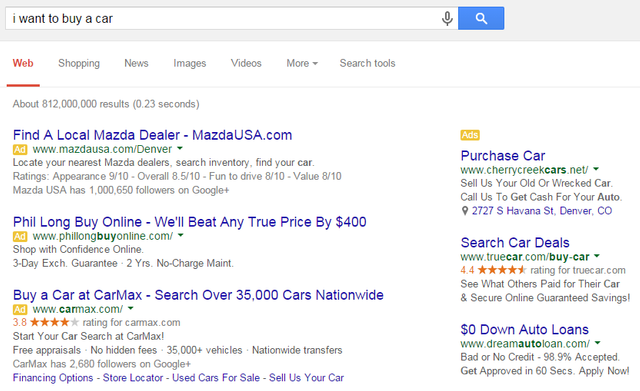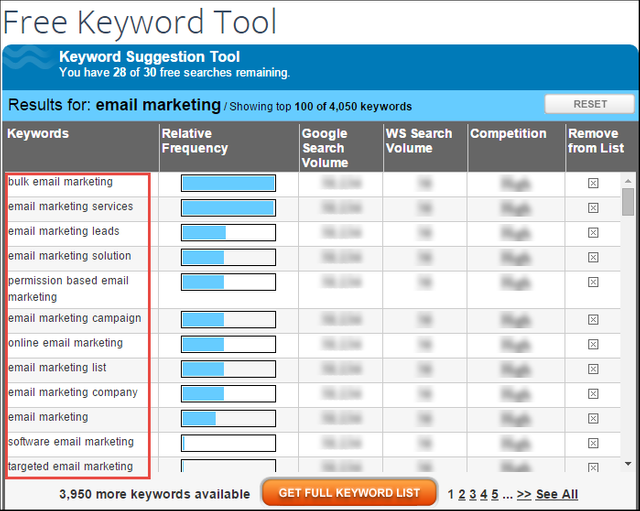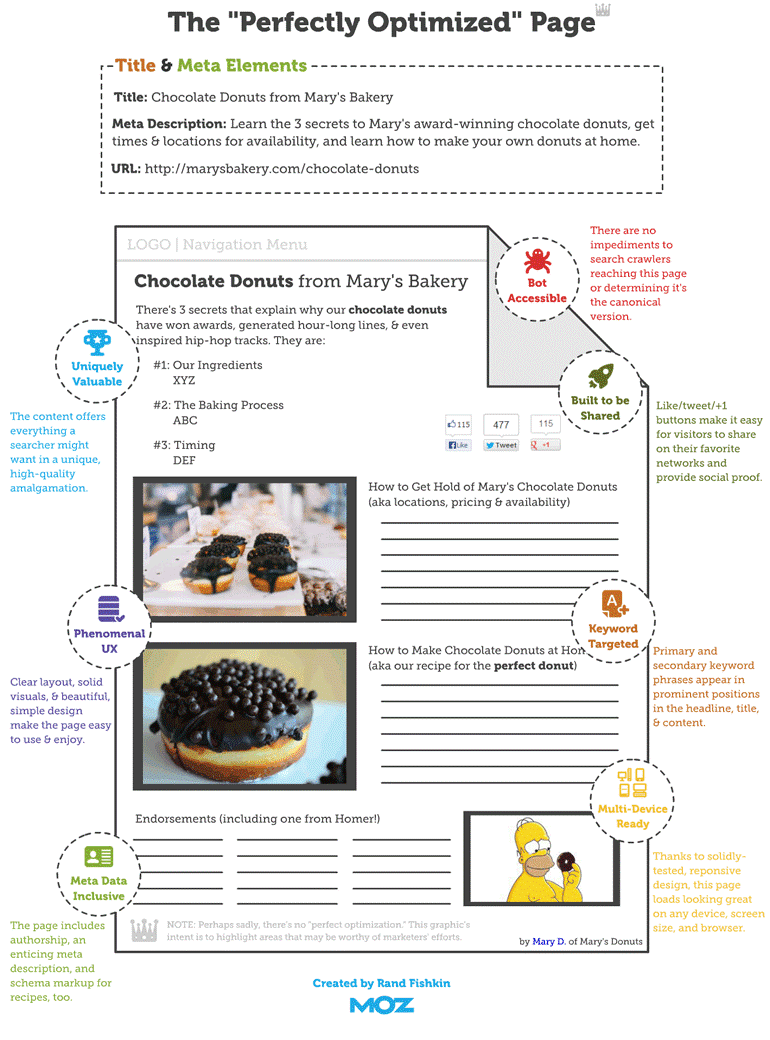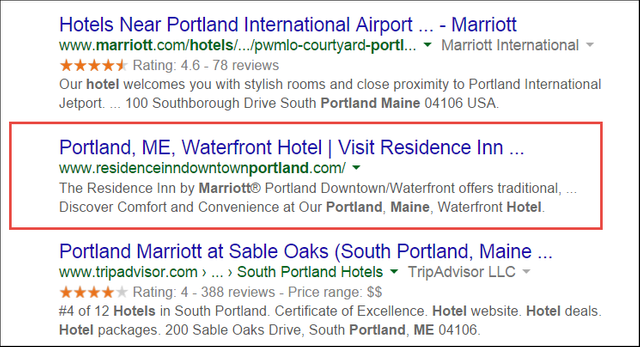SEO Optimization - Learn to Optimize for SEO
This guide will be an introduction to and overview of search engine optimization (SEO), a hugely important tactic for driving traffic to your site.
In this guide you’ll learn:
What is SEO & Why is it Important?
SEO Keyword Research & Keyword Targeting Best Practices
On-Page Optimization Best Practices
Let's get started!
- What is SEO & Why is it Important?
Search engine optimization is the process of optimizing web pages and their content to be easily discoverable by users searching for terms relevant to your website. The term SEO also describes the process of making web pages easier for search engine indexing software, known as "crawlers," to find, scan, and index your site.
While the concept of SEO is relatively straightforward, many newcomers to SEO still have questions about the specifics, such as:
How do you “optimize” for your site or your company’s site for search engines?
How do you know how much time to spend on SEO?
How can you differentiate “good” SEO advice from “bad” or harmful SEO advice?
Perhaps the most important aspect of search engine optimization is how you can actually leverage SEO to help drive more relevant traffic, leads, and sales for your business.
Why Should You Care About SEO?
Billions of searches are conducted online every single day. This means an immense amount of specific, high-intent traffic.
Many people search for specific products and services with the intent to pay for these things. These searches are known to have commercial intent, meaning they are clearly indicating with their search that they want to buy something you offer.

SEO primer
A search query like "I want to buy a car" displays clear commercial intent
People are searching for any manner of things directly related to your business. Beyond that, your prospects are also searching for all kinds of things that are only loosely related to your business. These represent even more opportunities to connect with those folks and help answer their questions, solve their problems, and become a trusted resource for them.
Are you more likely to get your widgets from a trusted resource who offered great information each of the last four times you turned to Google for help with a problem or someone you’ve never heard of?
What Actually Works for Driving SEO Traffic from Search Engines?
It’s important to note that Google is responsible for the majority of the search engine traffic in the world. This may vary from one industry to another, but it’s likely that Google is the dominant player in the search results that your business or website would want to show up in, but the best practices outlined in this guide will help you to position your site and its content to rank in other search engines, as well.

learn SEO basics
Google dominates among search engines, but don't sleep on sites like Yahoo and Bing
So how does Google determine which pages to return in response to what people search for? How do you get all of this valuable traffic to your site?
Google’s algorithm is extremely complex, but at a high level:
Google is looking for pages that contain high-quality, relevant information relevant to the searcher’s query.
Google's algorithm determines relevance by “crawling” (or reading) your website’s content and evaluating (algorithmically) whether that content is relevant to what the searcher is looking for, based on the keywords it contains and other factors (known as "ranking signals").
Google determines “quality” by a number of means, but a site's link profile - the number and quality of other websites that link to a page and site as a whole - is among the most important.
Increasingly, additional ranking signals are being evaluated by Google’s algorithm to determine where a site will rank, such as:
How people engage with a site (Do they find the information they need and remain on the site, or do they "bounce" back to the search page and click on another link? Or do they just ignore your listing in search results altogether and never click-through?)
A site’s loading speed and “mobile-friendliness”
How much unique content a site has (versus “thin” or duplicated, low-value content)
There are hundreds of ranking factors that Google’s algorithm considers in response to searches, and Google is constantly updating and refining its process to ensure that it delivers the best possible user experience.
- SEO Keyword Research & Keyword Targeting Best Practices
The first step in search engine optimization is to determine what you’re actually optimizing for. This means identifying terms people are searching for, also known as “keywords,” that you want your website to rank for in search engines like Google.
For example, you may want your widget company to show up when people look for “widgets,” and maybe when they type in things like “buy widgets.” The figure below shows search volume, or the estimated number of searches for a specific term, over a period of time:

search volume for SEO keywords
Tracking SEO keywords across various time periods
There are several key factors to take into account when determining the keywords you want to target on your site:
Search Volume – The first factor to consider is how many people are actually searching for a given keyword. The more people there are searching for a keyword, the bigger the potential audience you stand to reach. Conversely, if no one is searching for a keyword, there is no audience available to find your content through search.
Relevance – A term may be frequently searched for, but that does not necessarily mean that it is relevant to your prospects. Keyword relevance, or the connection between content on a site and the user's search query, is a crucial ranking signal.
Competition – Keywords with higher search volume can drive significant amounts of traffic, but competition for premium positioning in the search engine results pages can be intense.
First, you need to understand who your prospective customers are and what they’re likely to search for. From there you need to understand:
- What types of things are they interested in?
What problems do they have?
What type of language do they use to describe the things that they do, the tools that they use, etc.?
Who else are they buying things from?
Once you’ve answered these questions, you’ll have an initial “seed list” of possible keywords and domains to help you find additional keyword ideas and to put some search volume and competition metrics around.
Take the list of core ways that your prospects and customers describe what you do, and start to input those into keyword tools like Google’s own keyword tool or tools like keyword tool:

Free Keyword Tool for SEO
Additionally, if you have an existing site, you’re likely getting some traffic from search engines already. If that’s the case, you can use some of your own keyword data to help you understand which terms are driving traffic (and which you might be able to rank a bit better for).
Unfortunately, Google has stopped delivering a lot of the information about what people are searching for to analytics providers. Google does make some of this data available in their free Webmaster Tools interface (if you haven’t set up an account, this is a very valuable SEO tool both for unearthing search query data and for diagnosing various technical SEO issues).
Once you’ve taken the time to understand your prospects, have looked at the keywords driving traffic to your competitors and related sites, and have looked at the terms driving traffic to your own site, you need to work to understand which terms you can conceivably rank for and where the best opportunities actually lie.
Determining the relative competition of a keyword can be a fairly complex task. At a very high level, you need to understand:
How trusted and authoritative (in other words: how many links does the whole site get, and how high quality, trusted, and relevant are those linking sites?) other entire sites that will be competing to rank for the same term are
How well aligned they are with the keyword itself (do they offer a great answer to that searcher’s question)
How popular and authoritative each individual page in that search result is (in other words: how many links does the page itself have, and how high quality, trusted, and relevant are those linking sites?)
You can dive deeper into the process of determining how competitive keywords are by using WordStream founder Larry Kim’s competitive index formula.
- On-Page Optimization for SEO
Once you have your keyword list, the next step is actually implementing your targeted keywords into your site’s content. Each page on your site should be targeting a core term, as well as a “basket” of related terms. In his overview of the perfectly optimized page, Rand Fishkin offers a nice visual of what a well (or perfectly) optimized page looks like:

perfectly SEO optimized page
The "Perfectly Optimized Page"
Let’s look at a few critical, basic on-page elements you’ll want to understand as you think about how to drive search engine traffic to your website:
Title Tags
While Google is working to better understand the actual meaning of a page and de-emphasizing (and even punishing) aggressive and manipulative use of keywords, including the term (and related terms) that you want to rank for in your pages is still valuable. And the single most impactful place you can put your keyword is your page’s title tag.
The title tag is not your page’s primary headline. The headline you see on the page is typically an H1 (or possibly an H2) HTML element. The title tag is what you can see at the very top of your browser, and is populated by your page’s source code in a meta tag:
Your title tag matches your organic result headline: Make it clickable
The length of a title tag that Google will show will vary (it’s based on pixels, not character counts) but in general 55-60 characters is a good rule of thumb here. If possible you want to work in your core keyword, and if you can do it in a natural and compelling way, add some related modifiers around that term as well. Keep in mind though: the title tag will frequently be what a searcher sees in search results for your page. It’s the “headline” in organic search results, so you also want to take how clickable your title tag is into account.
Meta Descriptions
While the title tag is effectively your search listing’s headline, the meta description (another meta HTML element that can be updated in your site’s code, but isn’t seen on your actual page) is effectively your site’s additional ad copy. Google takes some liberties with what they display in search results, so your meta description may not always show, but if you have a compelling description of your page that would make folks searching likely to click, you can greatly increase traffic. (Remember: showing up in search results is just the first step! You still need to get searchers to come to your site, and then actually take the action you want.)
Here’s an example of a real-world meta description showing in search results:
SEO basics meta descriptions
Meta descriptions = SEO "ad copy"
Body Content
The actual content of your page itself is, of course, very important. Different types of pages will have different “jobs” – your cornerstone content asset that you want lots of folks to link to needs to be very different than your support content that you want to make sure your users find and get an answer from quickly. That said, Google has been increasingly favoring certain types of content, and as you build out any of the pages on your site, there are a few things to keep in mind:
Thick & Unique Content – There is no magic number in terms of word count, and if you have a few pages of content on your site with a handful to a couple of hundred words you won’t be falling out of Google’s good graces, but in general recent Panda updates in particular favor longer, unique content. If you have a large number (think thousands) of extremely short (50-200 words of content) pages or lots of duplicated content where nothing changes but the page’s title tag and say a line of text, that could get you in trouble. Look at the entirety of your site: are a large percentage of your pages thin, duplicated, and low value? If so, try to identify a way to “thicken” those pages, or check your analytics to see how much traffic they’re getting, and simply exclude them (using a noindex meta tag) from search results to keep from having it appear to Google that you’re trying to flood their index with lots of low-value pages in an attempt to have them rank.
Engagement – Google is increasingly weighting engagement and user experience metrics more heavily. You can impact this by making sure your content answers the questions searchers are asking so that they’re likely to stay on your page and engage with your content. Make sure your pages load quickly and don’t have design elements (such as overly aggressive ads above the content) that would be likely to turn searchers off and send them away.
Alt Attributes
How you mark up your images can impact not only the way that search engines perceive your page but also how much search traffic from image search your site generates. An alt attribute is an HTML element that allows you to provide alternative information for an image if a user can’t view it. Your images may break over time (files get deleted, users have difficulty connecting to your site, etc.) so having a useful description of the image can be helpful from an overall usability perspective. This also gives you another opportunity – outside of your content – to help search engines understand what your page is about.
By writing naturally about your topic, you’re avoiding “over-optimization” filters (in other words: it doesn’t make it look like you’re trying to trick Google into ranking your page for your target keyword) and you give yourself a better chance to rank for valuable modified “long tail” variations of your core topic.
URL Structure
Your site’s URL structure can be important both from a tracking perspective (you can more easily segment data in reports using a segmented, logical URL structure), and a shareability standpoint (shorter, descriptive URLs are easier to copy and paste and tend to get mistakenly cut off less frequently). Again: don’t work to cram in as many keywords as possible; create a short, descriptive URL.
Schema & Markup
Finally, once you have all of the standard on-page elements taken care of, you can consider going a step further and better helping Google (and other search engines, which also recognize schema) to understand your page.
Schema markup does not make your page show up higher in search results (it’s not a ranking factor, currently). It does give your listing some additional “real estate” in the search results, the way ad extensions do for your AdWords ads.
In some search results, if no one else is using schema, you can get a nice advantage in click-through rate by virtue of the fact that your site is showing things like ratings while others don’t. In other search results, where everyone is using schema, having reviews may be “table stakes” and you might be hurting your CTR by omitting them:

This content appears to be plagiarised from -
https://www.wordstream.com/seo
If you have not already done so, you should head to the newcomers community and complete the newcomer achievement programme. Not only will you earn money through upvotes, you will learn about content etiquette;
You are currently in Stage 1 of our 4 Stage Process:
👉 Stage 1 - 1st Warning - Pointing offenders towards Achievement 3 and highlighting this process. All plagiarised posts currently pending rewards will be flagged and downvoted to $0 rewards.
Stage 2 - A Final Warning - Another request to stop and that plagiarism will not be tolerated. Downvotes amounting to 20% of total pending rewards according to steemworld.
Stage 3 - A stronger message - Downvotes amounting to 50% of pending rewards.
Stage 4 - The strongest message possible - Downvotes amounting to 100% of pending rewards.
Plagiarists will bypass stage 1 if translated from another language.